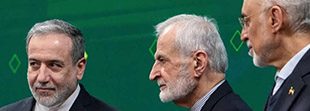His doctorate was financed by the Iranian Ministry of Culture and Higher Education, reflecting his academic merit and political loyalty. Upon returning to Iran, he joined Shahid Beheshti University as an assistant professor in the Department of Political Science, a position he held until his retirement in 2013 (1392 in the Persian calendar).
Early Political Roles and Revolution
Following the Islamic Revolution in 1979, Tavakoli rapidly rose through the newly forming government. He held successive roles in Behshahr as the head of the city police, the Islamic Revolutionary Committee, the deputy prosecutor, and eventually the revolutionary prosecutor.
Behshahr, under his oversight, gained a reputation for its strict and literal implementation of Islamic punishments under Sharia law—most notably qisas (retribution in kind) and amputation for theft. While these measures drew both domestic support and criticism, they reflected the revolutionary fervor of the era and the determination of figures like Tavakoli to enforce Islamic justice uncompromisingly.
Cabinet Position and Resignation
In the early 1980s, Tavakoli ascended to national prominence. He served as the spokesman for the government of Mohammad Ali Rajai and later became Minister of Labor and Social Affairs in Mir Hossein Mousavi’s first cabinet. His tenure, however, was short-lived. He resigned amid internal disagreements, likely stemming from diverging views on economic policies and administrative priorities.
After stepping down from the cabinet, he turned to journalism and media, founding the newspaper Resalat, which became a prominent conservative daily. However, disillusioned with factional pressures and state influence, he later moved to the UK to complete his doctoral studies.

